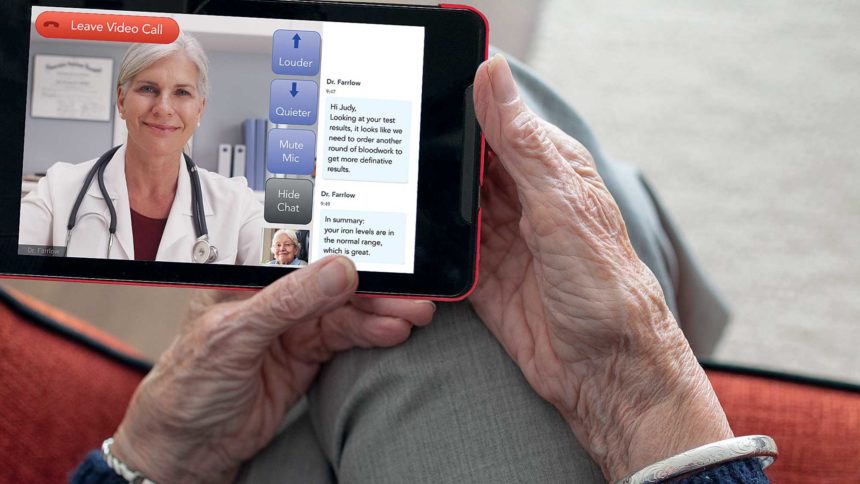
Remote monitoring options continue to grow during the age of COVID-19, with many software vendors improving their offerings specifically for long-term care providers.
As an example, GrandPad this spring added connected device capabilities to its mobile and telehealth platform to support virtual care and remote monitoring. GrandPad Daily Connect is designed to detect abnormalities in the physical, cognitive and emotional well-being of older adults and to wirelessly transmit data and insights to caregivers to determine if interventions are needed.
As remote monitoring adoption has spiked significantly in the U.S., foreign vendors are looking for a piece of the nursing home market.
Vtuls, for instance, is offering its artificial intelligence-backed remote health monitoring for free. Vtuls’ U.S. Food and Drug Administration-approved technology can remotely track more than 40 vital signs, using machine learning to send an early warning alert to clinicians when deterioration occurs.
The company claims clinical trials have shown its technology leads to improved patient outcomes and decreased healthcare costs for conditions such as heart failure, chronic obstructive pulmonary disease and diabetes. The platform is in use in seven countries — and being used to monitor COVID-19 in some of them.
The increased range of options comes as the U.S. government has eased Medicare telehealth restrictions during the coronavirus pandemic to reduce in-person monitoring and limit disease transmission.
In addition to funding the use of services, the Federal Communications Commission is also encouraging adoption of more technologies. Late this spring, the agency granted New Jersey-based United Methodist Communities more than $900,000 to fund a remote patient-monitoring platform and telehealth software licenses for its skilled nursing unit. The platform and licenses will help prevent falls and other dangerous conditions and could also help providers dealing with staff shortages, according to the FCC.
“This funding may very well be a game-changer not only for UMC, but for the senior living industry,” said UMC President and CEO Larry Carlson.
From the July/August 2020 Issue of McKnight's Long-Term Care News



